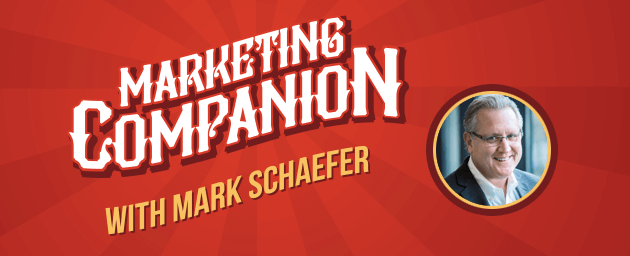Last week I was honored to participate in The Global Peter Drucker Forum, a prestigious annual gathering of business thought leaders in Vienna. Unfortunately, due to the pandemic, it was obviously not in Vienna and was a typical Zoom-style gathering! While I missed the elegance of Austria, I did enjoy soaking up some new insights!
The content was superb, and something struck me in a presentation called “The Path to Humanocracy.” This session featured awe-inspiring case studies of companies on the forefront of “being more human” through strong corporate values — and of course I was glowing over that!
But this discussion also led to an insight about a pressing leadership issue: — connecting to customers through values-based marketing in periods of social upheaval.
The power of shared meaning
As a consultant, I’m constantly asked about corporate strategies to respond to the upheaval of civil justice movements, environmental concerns, the pandemic, and other crises dominating the headlines. Cause-based, or values-based, marketing is perhaps the most pressing priority in all of marketing today.
On one level, we can recognize that expressing shared meaning with customers through corporate values is a powerful path to loyalty. Research conducted by Edelman showed that 67 percent of consumers will try a brand for the first time solely because they agree with its position on a controversial topic, and 65 percent said they will not buy a brand when it stays silent on an issue they consider important.
The study, which polled 8,000 people in eight countries, found that a company’s position on a social issue can drive purchase intent just as much as the features of a product. Nearly a quarter of all consumers will pay at least a 25 percent premium when their values align with a brand, and 51 percent will buy the brand exclusively based on shared values.
Increasingly, we support businesses that are generous and mindful of the impact they make. We’re moving toward the formulation of a new value equation – one that rewards work that is carried out with heart and rewards businesses that are driven by purpose before profits.
Perhaps this movement was codified in 2018 when investment firm BlackRock shook Wall Street with an edict to business leaders that companies need to do more than make profits – they also need to contribute to society if they want to receive support from the investment company — “Sustainability is our Standard for Investing.”
Leading with corporate values
But responding to evolving customer views as a marketing ploy instead of an expression of a deep-rooted company value can be seen as pandering and tone-deaf. Marketers often flock to whatever is popular until they ruin it, and this is happening with the trend of “woke-washing” filling the airwaves.
The common theme in the “Humanocracy” presentation was that corporate values are the essential North Star in an operating system that helps us respond authentically and consistently to any changing environment.
Tracey Davidson, Deputy CEO at Handelsbanken, said that the value statement known by every bank employee was established 50 years ago. Chief among these is compassion for customers that have driven 48 straight years of segment-leading financial performance.
Florent Menegaux, Président du groupe Michelin, echoed Tracey’s message, pointing out that the fundamental values driving his company and its success have been embedded in the Michelin culture for decades.
Kevin Nolan, CEO of GE Appliances had an interesting perspective on company values. He noted that for many years GE was a chaotic place to work as leaders and philosophies changed year-by-year in an attempt to improve profitability. Then the business unit was acquired by the Chinese company Haier, and to his amazement, there was almost no change in the leadership team or manufacturing processes. Instead, Haier implemented a decades-old value system focused on employee trust and accountability. The business is having the most profitable period in its 95-year history.
The North Star
While there’s an important message about the essence of corporate values and consistent leadership here, there is also an implication for marketing in this period of unprecedented upheaval.
“Trust is the beginning and end of everything we stand for,” Davidson said.
And trust is the key to success in values-based marketing as well.
If you consider a company like Patagonia, of course we trust any message they deliver relating to the environment because we know this is embedded as the core DNA of the company. It is consistent with everything they do, resulting in admiration and trust.
Likewise, the message delivered by the Drucker Forum leaders emphasized the importance of corporate values leading to trust as a fundamental core competency.
The trust established by values-based companies such as Handelsbanken, Michelin, and GE Appliances will seamlessly and effortlessly create a compassionate and appropriate company marketing presence amid turmoil and uncertainty.
 Mark Schaefer is the executive director of Schaefer Marketing Solutions. He is the author of several best-selling digital marketing books and is an acclaimed keynote speaker, college educator, and business consultant. The Marketing Companion podcast is among the top business podcasts in the world. Contact Mark to have him speak to your company event or conference soon.
Mark Schaefer is the executive director of Schaefer Marketing Solutions. He is the author of several best-selling digital marketing books and is an acclaimed keynote speaker, college educator, and business consultant. The Marketing Companion podcast is among the top business podcasts in the world. Contact Mark to have him speak to your company event or conference soon.



